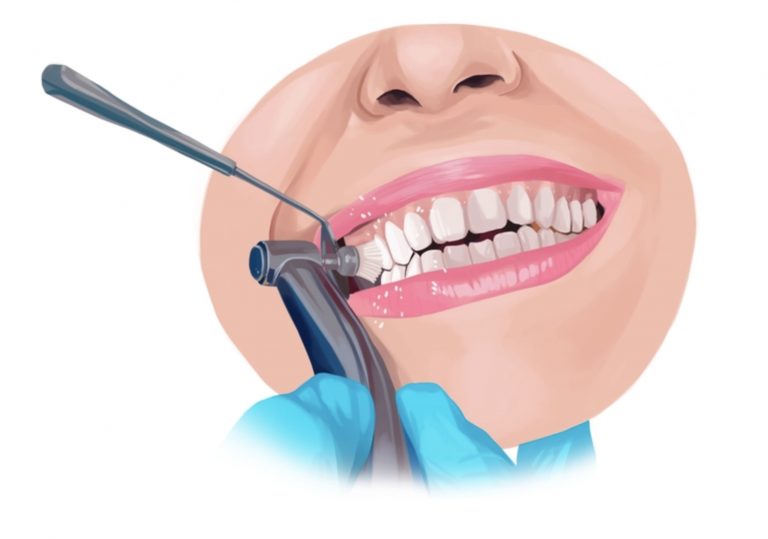You’re never too old to relearn good oral hygiene habits, like those your dental hygienist reviews proper tooth-brushing and flossing techniques with you. It’s easy to get lazy and form bad habits when it comes to oral care, which is why you should step up your dental health game to protect your teeth, now.
You know good, healthy dental care isn’t just for kids. Here are six ways to strengthen your adult teeth.
Story Stages
Regular Visits to the Dentist
How often should you visit the dentist? Most healthy children and adults go to the dentist two times every year. They get their teeth cleaned during each visit and X-rays once a year. The ADA recommends that you go however often your dentist recommends. Some people might benefit from annual checkups while others, particularly smokers and diabetics, benefit from frequent visits and cleanings.
Cost is the main reason people don’t visit the dentist. If you lack dental insurance, there might be some affordable dental care options in your area. Most dental schools offer low-cost dental services performed by student dentists while under the supervision of licensed dental professionals. Your local health department might also direct you to resources that can help with the cost of dental care. Some dentists offer payment plans or memberships.
Of course, the best way to save money on oral care is to take great care of your teeth.
Practice Excellent Oral Care Habits
Prevention is key. Truth is, it’s easier, less painful, and costs less to prevent something from happening than it is to fix it. Pay to have a cavity filled and you’ll agree.
In addition to regular visits to the dentist, the CDC lists nine things you can do to maintain optimal oral health:
- Drink fluoridated water and use fluoride-fortified oral care products.
- Brush two times a day.
- Floss daily.
- Don’t use tobacco.
- Limit alcohol intake.
- Control (or prevent) diabetes.
- Drink plenty of water, particularly if you suffer from dry mouth.
- Consult your dentist or physician if you notice unusual changes in tastes or smell.
- Help children and older people practice good oral care.
Never skip a tooth-brushing. No matter how tired you might be, any half-effort brushing is better than skipping it.
Remineralize Your Teeth
Add remineralization to your daily routine to step up your oral care practice. Remineralization is a process that rebuilds tooth enamel, which breaks down any time we consume acidic foods and beverages. Some medications and medical conditions can also weaken tooth enamel.
Although saliva naturally remineralizes teeth, you can look for oral care products to help facilitate the process. When shopping for teeth whitening products, look for those that brighten your teeth and remineralize tooth enamel.
You can further slow down the demineralization process by eliminating sugar and reducing acidic foods from your diet. When you eat highly acidic foods and you don’t brush your teeth or rinse your mouth within 20 to 30 minutes, those foods are more likely to erode your tooth enamel.
Do Not Use Tobacco
Although we discussed tobacco in the previous section, it’s worth devoting a section to the ways that smoking or chewing tobacco is bad for your teeth and general overall health.
Tobacco discolors your teeth and creates plaque and tartar, which promote cavities. It also restricts blood circulation, lessening your body’s ability to fight bacteria and infection.
Smoking and chewing tobacco slow saliva production, increasing the risk for gum disease, periodontal disease, and a slew of other health issues, including mouth cancer three to six times (Ameritas).
One of the best things you can do to strengthen your teeth if you smoke or chew tobacco is to quit.
Hydrate
If you suffer from dry mouth, speak with your physician about any medications you take that might be causing it, or underlying health conditions that need addressing. Also, consult your dentist about your dry mouth; they can recommend rinses or sugar-free gums that might help.
Colas, juices, and sports drinks are highly acidic, which can stain your teeth, and cause tooth decay.
Eliminate Sugar Out Of Your Diet
Although we mentioned eliminating sugar above, it’s worth repeating: Sugar is awful for your teeth. It weakens tooth enamel, allowing bad bacteria to attack your teeth. That’s how cavities form.
Consuming sugar contributes to obesity and potentially type 2 diabetes, which can lead to tooth decay. There is a strong connection between diabetes and gum disease (periodontitis), gingivitis, and other diseases of the mouth.
If you consume sugar, brush your teeth within 20 minutes. If that’s not possible, the next best thing to do is rinse your mouth with fluoridated water, swishing it around and pushing and pulling it through your teeth.
Some dental professionals recommend drinking sugary drinks through a straw, as this helps them bypass your teeth.
